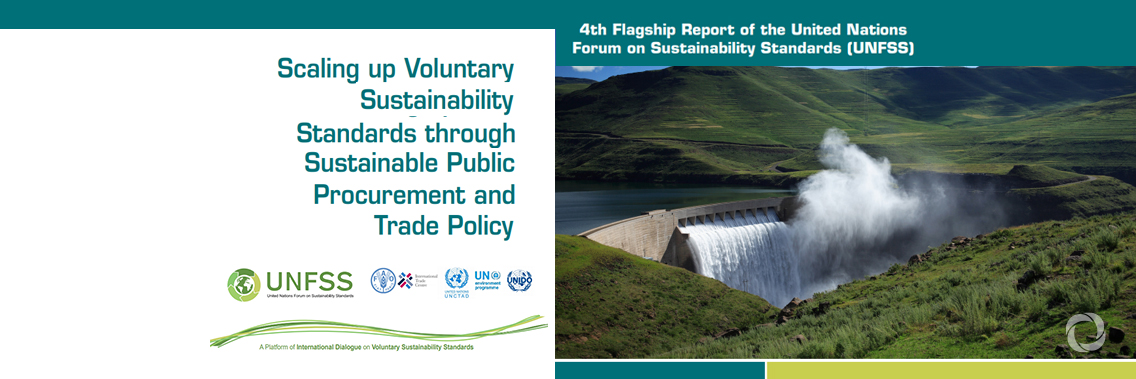As governments respond with unprecedented spending to combat the coronavirus pandemic, a new report released by the United Nations Forum on Sustainability Standards (UNFSS), urges them to ensure public procurement does no harm to people and the planet.
The report explores how government spending can drive the uptake of voluntary sustainability standards (VSS) – special rules that guarantee that the products we buy do not hurt the environment and the people that make them. It is the fourth edition of the UNFSS report.
VSS ensure products are made or transported in accordance with certain sustainability metrics, such as its environmental impact, basic human rights, labour standards, and gender equality
“The integration of VSS in public procurement and trade policies can scale up their adoption,” said Isabelle Durant, deputy head of UNCTAD, which coordinates UNFSS, a group of five UN agencies that promote these rules.
The group includes the Food and Agricultural Organization (FAO), the International Trade Centre (ITC), the United Nations Environment Programme (UNEP), and United Nations Industrial Development Organization (UNIDO).
COVID-19 has obstructed economic growth, increased unemployment, exposed inequalities, and raised poverty and global hunger, rolling back the progress made in achieving the Sustainable Development Goals (SDGs).
While government spending and relief is at the heart of the COVID-19 response, there needs to also be a long-term focus on ensuring action today does not scupper our sustainability goals. More strategic public procurement can help.
Public procurement represents, on average 12% of GDP in the Organisation for Economic Co-operation and Development (OECD) countries and up to 30% of GDP in developing countries.
But VSS adoption rates vary significantly by country. A sustained effort by governments to use sustainable public procurement could change this, the report finds.
Integrating sustainable development in public procurement and national trade policy is a starting point, the report finds.
It proposes five key steps that countries can take to integrate VSS into public policy:
- Enhance national capacity through a governance model that involves independent certification bodies to cope with rising demand as the number of VSS grows.
- Incorporate VSS within the trade regime with a database that uses the Standard International Trade Classification to provide an overview of the commodities covered by the standards.
- Avoid the proliferation of VSS systems through convergence and divergence of recognition mechanisms.
- Curb over-certification through appropriate measures.
- Conduct political dialogue on the benefits of scaling up VSS.
Read the report: Scaling up Voluntary Sustainability Standards through Sustainability Public Procurement and Trade Policy.
Original source: UNCTAD

